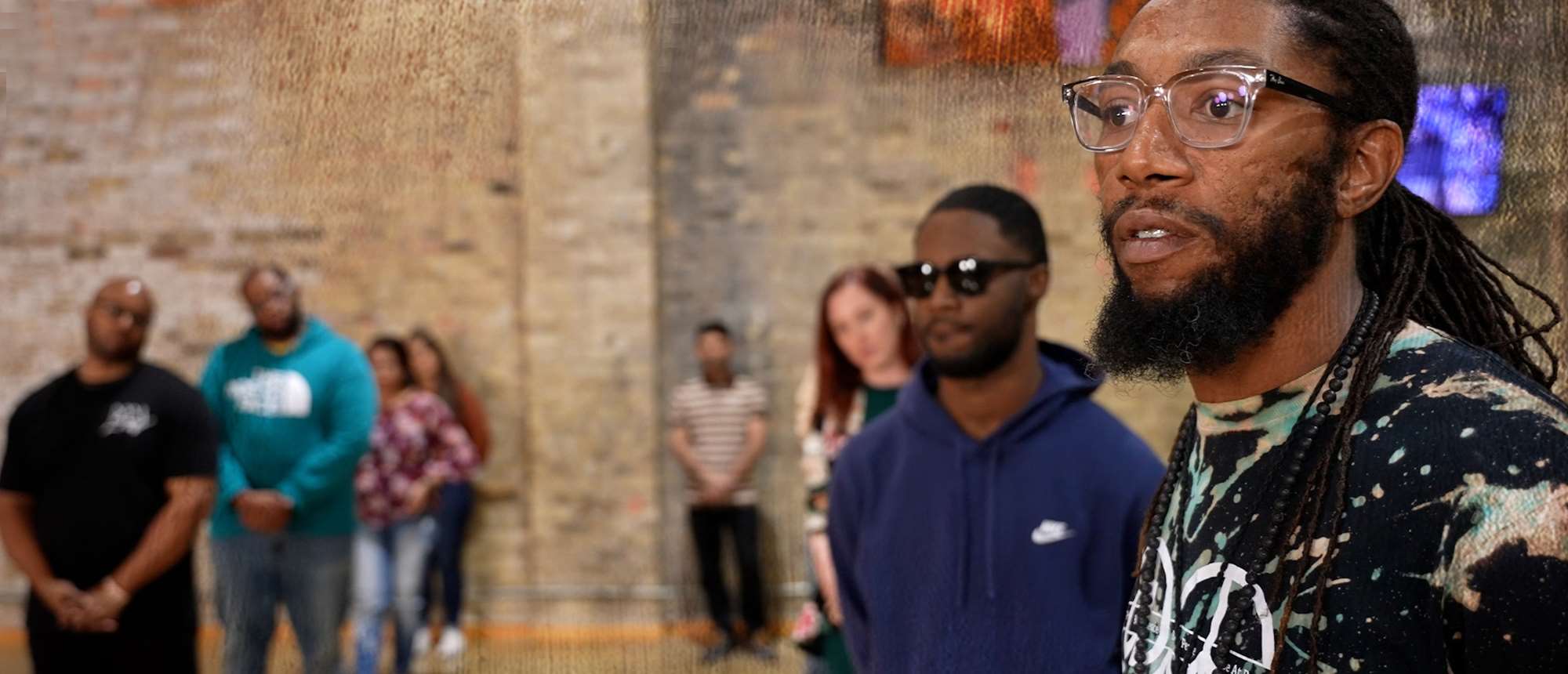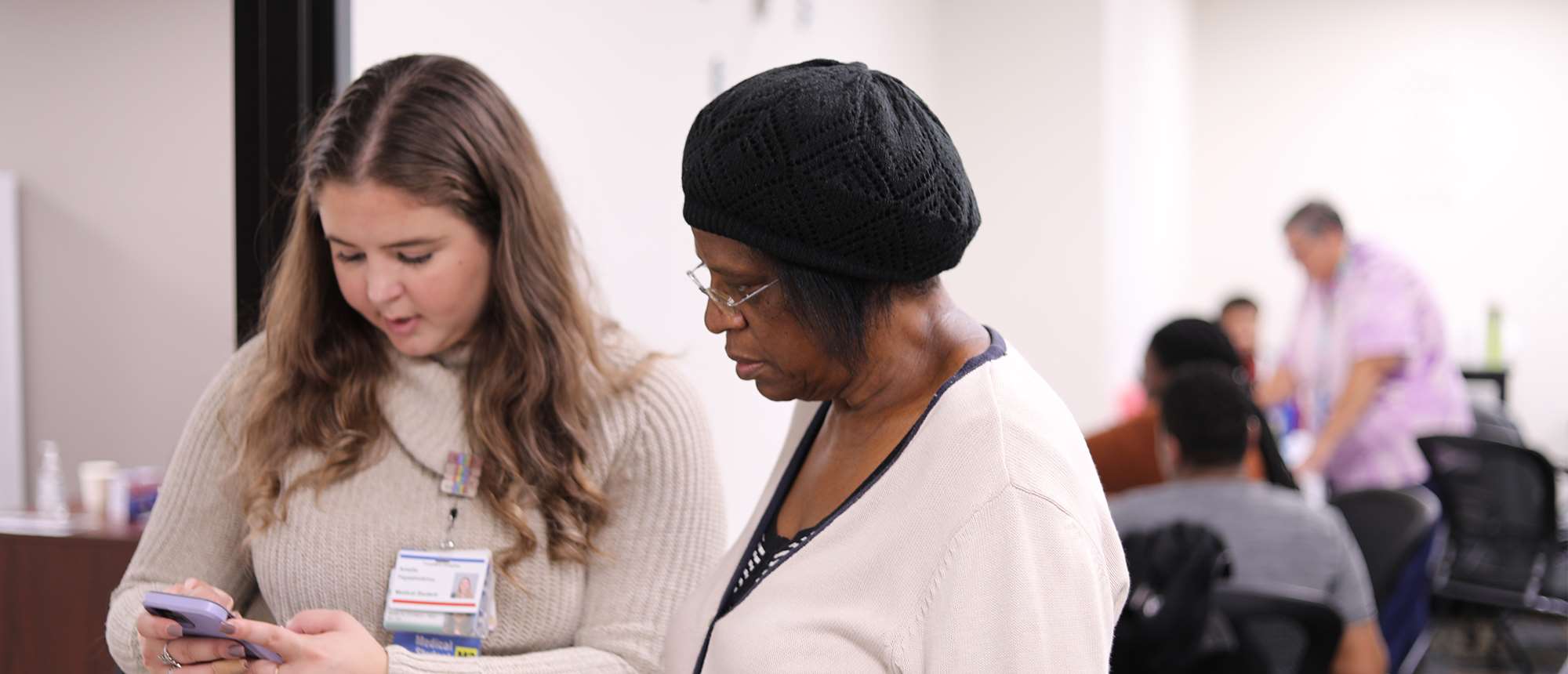Walking the Walk
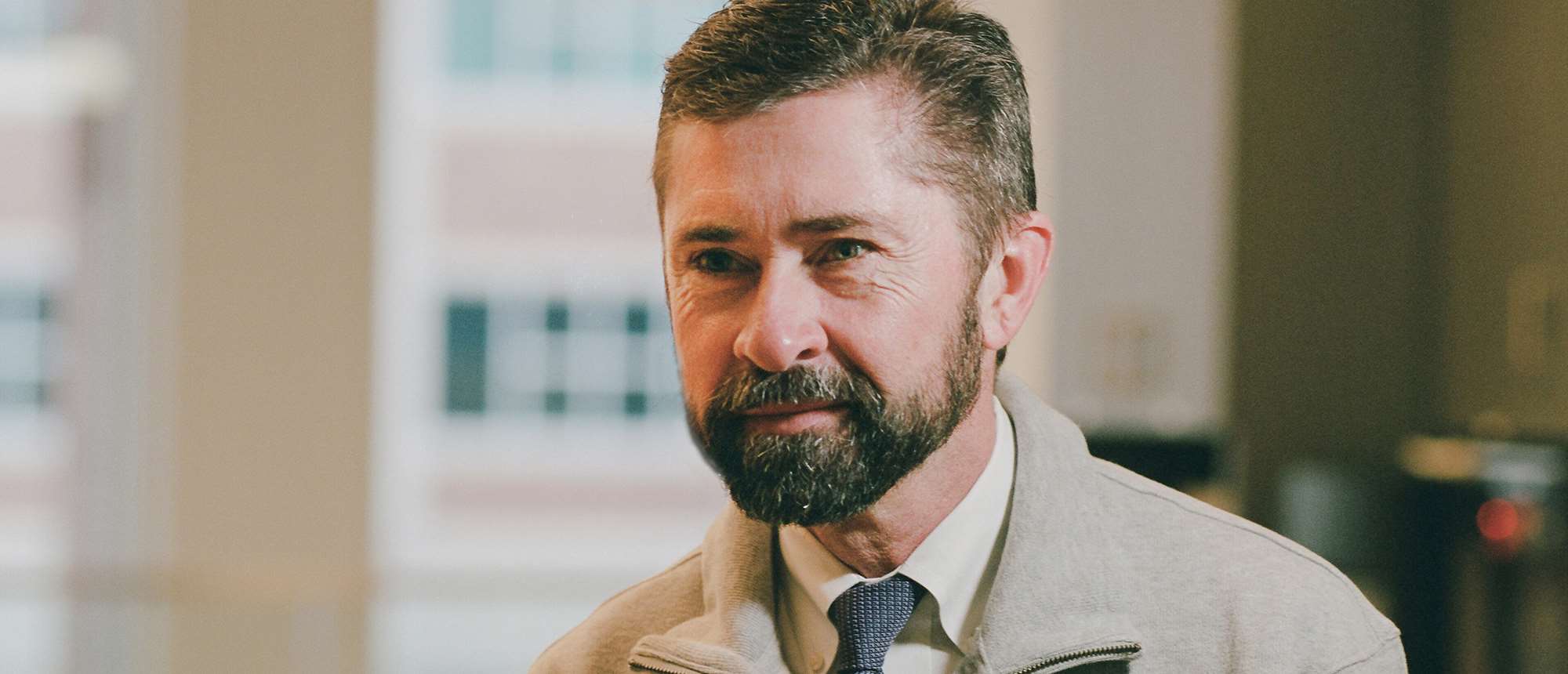
For David Nelson, PhD, MS, associate professor of family and community medicine at the Medical College of Wisconsin (MCW), the streets of Milwaukee serve as extended classrooms not just for students, but for him as well.
"To me there's nothing like hands-on experiences that help you grow both as a person and from an educational space," Dr. Nelson says. "If I'm going to write about food deserts, I need to know how people who go to pantries live their life."
Dr. Nelson is a community-based researcher, which means he not only "talks the talk," but "walks the walk." That walk often takes him to some of Milwaukee's most impoverished neighborhoods, where he and students that join him meet "community navigators." Navigators, explains Dr. Nelson, are people who live in or serve the communities Dr. Nelson and his students are trying to better understand. They provide a historic and cultural perspective that someone from the outside can't begin to understand unless they’re welcomed and supported by the community they wish to serve.
One such navigator was Max Ramsey, pastor at Immanuel Baptist Church and site manager with Friedens Community Ministry, which run a series of food pantries in the Milwaukee area. Max Ramsey, his son, Jack, and Dr. Nelson went from volunteering at a pantry together to founding StreetLife Communities, an organization that provides food, clothing and other support to those in need, including many who are homeless.
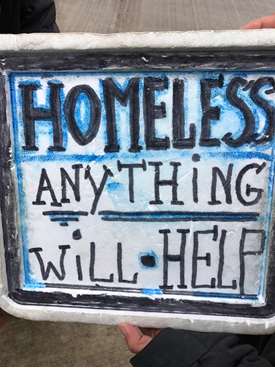
"Sometimes it's a sandwich, sometimes it's emotional support, and sometimes it's steel-toed boots for a woman so she can go to work," Dr. Nelson says.
As a faculty member in MCW's public health graduate school program, Dr. Nelson often discusses prevention and how understanding the community is a key aspect of it. Learning how to interact with the community complements the medical training MCW students are receiving because it will help them learn what health benefits they can provide and also where residents of the community are struggling health-wise.
The end result is a more well-rounded professional who has experience serving and understanding a community they will undoubtedly interact with on a regular basis once in the field, Dr. Nelson says. Being able to intertwine mission work and teaching has been a boon for Dr. Nelson, who came to MCW 11 years ago to participate in a midcareer fellowship on community-based participatory research.
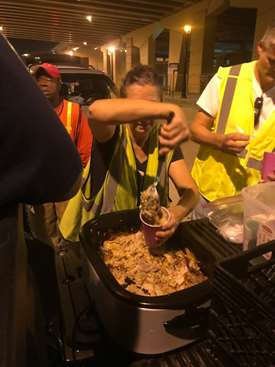 Upon arrival at MCW, he worked with Syed Ahmed, MD, MPH, DrPH, senior associate dean for community engagement, Linda Meurer, MD, MPH, professor of family and community medicine, and John Meurer, MD, MBA, director of MCW's Institute for Health and Equity, on a project involving research on health equity in relation to community health workers, food and physical activity. The research involved the Boys and Girls Club and other local nonprofits and continues today.
Upon arrival at MCW, he worked with Syed Ahmed, MD, MPH, DrPH, senior associate dean for community engagement, Linda Meurer, MD, MPH, professor of family and community medicine, and John Meurer, MD, MBA, director of MCW's Institute for Health and Equity, on a project involving research on health equity in relation to community health workers, food and physical activity. The research involved the Boys and Girls Club and other local nonprofits and continues today.
Being so deeply immersed in the community has necessitated unequivocal support from the leadership at MCW, for which Dr. Nelson says he’s grateful: "As a community-engaged researcher in the Department of Family and Community Medicine, I have been given the latitude to do research in a way that is vital, and I couldn't be more appreciative of that support."




